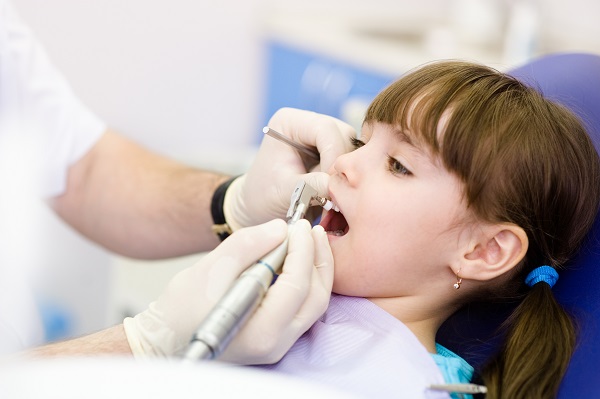
Introduction: Why Dental Care for Children is Important
Welcome, parents! We all know that raising kids can be an exciting, challenging, and sometimes overwhelming journey. Amidst the diapers, sleepless nights, and countless milestones, it’s easy to overlook one crucial aspect of your child’s health – their dental care. But fear not! In this guide, we’re here to remind you of the importance of early dental care for children and provide you with valuable tips on how to ensure your little ones have a lifetime of healthy teeth.
Your child’s smile is more than just adorable; it plays a vital role in their overall well-being. From chewing food properly to speaking clearly and confidently, having strong and healthy teeth sets the foundation for a lifetime of oral health. So let’s dive into why pediatric dentistry in Scottsdale should be at the top of your parenting priority list!
The Role of Baby Teeth in Oral Health
Baby teeth, also known as primary teeth or deciduous teeth, play a crucial role in the development of a child’s oral health. While these tiny pearly whites may seem temporary and insignificant, they actually serve several important functions.
First and foremost, baby teeth help children chew their food properly. This is vital for their overall nutrition and digestion. Without healthy baby teeth, children may have difficulty eating a balanced diet that promotes growth and development.
In addition to chewing, baby teeth also play a significant role in speech development. They help children learn how to pronounce different sounds correctly by guiding the tongue and lips into proper positions. Speech problems can arise if baby teeth are not well-maintained or prematurely lost due to decay.
Furthermore, baby teeth act as placeholders for permanent adult teeth. They hold space in the jaw until the permanent tooth is ready to erupt. If a baby tooth is lost prematurely due to decay or injury, neighboring teeth may shift into that empty space, potentially causing alignment issues when the permanent tooth tries to come in later.
Proper care of baby teeth sets the foundation for good oral hygiene practices throughout life. It teaches children about the importance of brushing twice daily and visiting the dentist regularly for check-ups and cleanings.
Recognizing the significance of baby teeth in oral health allows parents to prioritize early dental care for their children. By doing so, they ensure that their little ones develop strong healthy smiles that will last a lifetime!
Common Dental Issues in Children and How to Prevent Them
Maintaining good dental health is crucial for children as it sets the foundation for a lifetime of healthy teeth. Unfortunately, there are several common dental issues that children may face if proper care isn’t taken. Here are some of these issues and tips on how to prevent them.
1. Tooth decay: This is perhaps the most prevalent dental problem among children. The consumption of sugary foods and drinks, along with poor oral hygiene habits, can lead to tooth decay. To prevent this, encourage your child to brush their teeth at least twice a day using fluoride toothpaste and limit their intake of sugary snacks and beverages.
2. Thumb sucking: While thumb sucking is a natural reflex for infants, prolonged thumb sucking can cause misalignment of the teeth or even affect the roof of the mouth’s development. Gently discourage this habit when your child reaches toddlerhood.
3. Early tooth loss: Losing baby teeth too soon can disrupt proper spacing for permanent teeth later on. Protect your child’s teeth by ensuring they wear protective gear during sports activities or playtime.
4. Gum disease: Gingivitis, an early form of gum disease, can occur in children who don’t practice good oral hygiene habits. Encourage regular brushing and flossing to keep gums healthy.
5. Tongue thrusting: Some children develop the habit of pushing their tongues against their front teeth while swallowing or speaking, which can lead to misaligned bite patterns over time.
Teach your child proper tongue placement from an early age by gently reminding them not to push against their front teeth with their tongue.
By being proactive about preventive measures like these, you can help ensure that your child maintains optimal dental health throughout childhood into adulthood! So start instilling good oral hygiene practices in your little ones today!
Tips for Teaching Good Oral Hygiene Habits
Good oral hygiene habits are crucial for maintaining healthy teeth and gums in children. As a parent, it is your responsibility to teach your child the importance of taking care of their mouth from an early age. Here are some tips to help you instill good oral hygiene habits in your child.
Start by making brushing and flossing a fun activity rather than a chore. Use colorful toothbrushes and flavored toothpaste to make it more enticing for your little one. You can also play their favorite song or set a timer to make sure they brush for the recommended two minutes.
Lead by example and brush your teeth together as a family. Children learn best by watching others, so if they see you prioritize oral hygiene, they will be more likely to do the same.
Make sure your child understands proper brushing technique. Show them how to hold the toothbrush at a 45-degree angle and brush gently in circular motions on all surfaces of their teeth.
Incorporate rewards into their routine as positive reinforcement for good oral hygiene practices. This could be something as simple as giving them praise or stickers each time they brush their teeth without being reminded.
Encourage regular dental check-ups by emphasizing that visiting the dentist is not something to fear but rather an important part of keeping their smile healthy. Take them along with you during routine appointments so that they become familiar with the environment and feel comfortable sitting in the dental chair.
By following these tips, you can help set your child up for a lifetime of good oral health habits. Remember, consistency is key when it comes to teaching any habit, including oral hygiene!
The Role of Diet in Children’s Dental Health
When it comes to our children’s dental health, we often focus on brushing and flossing as the primary means of maintaining a healthy smile. While these practices are crucial, we must not overlook the significant impact that diet can have on oral health.
What our kids eat and drink can directly influence the health of their teeth and gums. A well-balanced diet that includes nutrient-rich foods like fruits, vegetables, whole grains, and lean proteins is essential for strong teeth and gums.
On the other hand, a diet high in sugary snacks and beverages can contribute to tooth decay. Sugars found in candies, sodas, juices, and even some seemingly healthy snacks can fuel harmful bacteria in the mouth that produce acids leading to cavities.
To promote good dental health through diet:
1. Limit sugary treats: Encourage your child to consume these foods in moderation.
2. Opt for water: Choose water over sugary drinks whenever possible.
3. Offer nutritious alternatives: Provide plenty of fresh fruits and vegetables as healthy snack options.
4. Practice mindful eating: Encourage your child to take time while eating meals rather than rushing through them.
By incorporating these dietary habits into your child’s routine alongside regular brushing and flossing, you’ll be taking proactive steps towards ensuring their long-term dental health!
When to Schedule Your Child’s First Dental Visit
One of the key aspects of early dental care for children is knowing when to schedule their first dental visit. The American Academy of Pediatric Dentistry recommends that a child should see a dentist by their first birthday or within six months after their first tooth appears.
By taking your child to the dentist at such an early age, you can establish a strong foundation for oral health and prevent potential issues in the future. During this initial visit, the dentist will examine your child’s mouth, check for any signs of decay or abnormalities, and provide guidance on proper oral hygiene practices.
Regular dental visits from an early age also help familiarize your child with the dental office environment, reducing anxiety and fear associated with future appointments. This sets them up for a positive attitude towards oral health as they grow older.
Additionally, scheduling regular dental visits allows the dentist to monitor any changes in your child’s teeth and gums over time. They can identify potential problems like cavities or misalignment earlier on and provide appropriate intervention if needed.
Remember that prevention is always better than treatment when it comes to oral health. By starting dental visits early, you are giving your child the best chance at maintaining healthy teeth and gums throughout their life.
The Benefits of Early Dental Care for Lifelong Oral Health
The benefits of early dental care for children go far beyond simply having a bright and healthy smile. By instilling good oral hygiene habits from an early age, parents can help set their children up for a lifetime of optimal oral health.
One of the major benefits of early dental care is the prevention of common dental issues such as cavities and gum disease. Regular visits to the pediatric dentist allow for regular cleanings and examinations, which can catch any potential problems before they become more serious.
Another benefit is that early dental care helps to establish a positive relationship with the dentist. By starting these visits at a young age, children become familiar with the sights, sounds, and smells associated with the dentist’s office. This familiarity can help alleviate any fears or anxiety they may have about future appointments.
Early dental care also provides an opportunity for education on proper oral hygiene techniques. Dentists can teach both parents and children how to effectively brush and floss their teeth, ensuring that plaque is removed and gums stay healthy.
Additionally, starting dental visits early allows dentists to monitor the growth and development of your child’s teeth. They can identify any potential orthodontic issues early on, which may require intervention later in life if left untreated.
Investing in your child’s smile by prioritizing their oral health from an early age sets them up for success in maintaining lifelong healthy teeth. So don’t delay – schedule that first pediatric dental visit today!
Conclusion: Invest in Your Child’s Smile for a Lifetime of Healthy Teeth
Investing in your child’s smile is one of the most important decisions you can make as a parent. By prioritizing early dental care, you are setting the foundation for a lifetime of healthy teeth and gums. The benefits go beyond just oral health; it also impacts overall well-being and self-confidence.
From understanding the role of baby teeth to preventing common dental issues, there are many steps you can take to ensure your child’s oral health journey starts off on the right foot. Teaching good oral hygiene habits, monitoring their diet, and scheduling regular dental visits are all key components to maintaining optimal oral health.
By instilling these practices early on, you’re not only helping your child avoid tooth decay and gum disease but also establishing lifelong habits that will benefit them as they grow older. Remember, prevention is always better than treatment when it comes to dental care.
So don’t wait any longer – prioritize pediatric dentistry in Scottsdale or wherever you may be located – invest in your child’s smile today! With proper care and attention from an early age, your little one can enjoy a lifetime of healthy teeth and beautiful smiles. Start their oral health journey now for a future filled with confident grins!

Tech Hub Digital, a one-stop destination for complete technology-related information.

